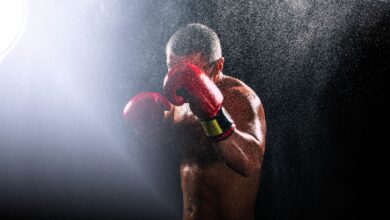
Health Tips: Martial arts require a unique combination of strength, flexibility, and endurance. Proper nutrition is essential for fueling the body, promoting recovery, and enhancing overall performance.
In this article, we explore key dietary strategies that martial artists can adopt to optimize their nutrition for peak performance.
1. The Importance of Hydration
Hydration is a fundamental aspect of athletic performance. Dehydration can lead to muscle fatigue, reduced endurance, and impaired cognitive function. Martial artists should:
- Drink at least 2-3 liters of water daily, adjusting based on training intensity.
- Consume electrolytes (sodium, potassium, magnesium) through natural sources like coconut water, bananas, and leafy greens.
- Rehydrate effectively after training with water and electrolyte-rich fluids to replace lost sweat and maintain muscle function.
2. Pre-Training Nutrition: Fueling Up for Success
What you eat before training significantly impacts your energy levels and performance. Aim to consume a balanced meal 2-3 hours before training that includes:
- Complex carbohydrates (brown rice, quinoa, sweet potatoes) for sustained energy.
- Lean protein (chicken, fish, tofu) to support muscle repair.
- Healthy fats (avocados, nuts, olive oil) for prolonged endurance.
- A light snack 30-60 minutes before training, such as a banana with peanut butter or a protein smoothie, for quick energy.
3. Post-Training Nutrition: Speeding Up Recovery
Recovery nutrition is just as important as pre-training meals. After intense martial arts practice, focus on:
- Protein for muscle repair: Lean meats, eggs, whey protein, or plant-based protein sources.
- Carbohydrates to replenish glycogen: Whole grains, fruits, or starchy vegetables.
- Healthy fats for inflammation control: Nuts, seeds, or omega-3-rich foods like salmon.
- Hydration: Drink water and consider a protein shake or smoothie with added electrolytes for quick absorption.
4. Essential Supplements for Martial Artists
While whole foods should be the foundation of nutrition, some supplements can support performance and recovery:
- Protein Powder: Helps meet protein requirements for muscle recovery.
- Branched-Chain Amino Acids (BCAAs): Reduces muscle fatigue and accelerates recovery.
- Creatine: Enhances strength, power, and overall performance.
- Omega-3 Fatty Acids: Supports joint health and reduces inflammation.
- Vitamin D and Magnesium: Crucial for muscle function, energy production, and bone health.
5. Nutrient Timing for Maximum Effectiveness
Optimizing when you eat can improve energy levels and performance:
- Pre-workout: Eat a balanced meal 2-3 hours before or a light snack 30 minutes prior.
- During training: If training exceeds 90 minutes, sip on electrolyte-rich drinks or have a small energy snack.
- Post-workout: Consume protein and carbs within 30-60 minutes for optimal muscle recovery.
6. Building a Sustainable Nutrition Plan
Consistency is key in martial arts nutrition. Consider these habits:
- Plan meals ahead to ensure balanced nutrition.
- Prioritize whole, unprocessed foods for better nutrient absorption.
- Listen to your body and adjust intake based on training intensity and goals.
- Maintain a balanced diet that includes varied sources of protein, carbohydrates, and healthy fats.
Nutrition plays a vital role in the performance, endurance, and recovery of martial artists. By focusing on proper hydration, balanced pre- and post-training meals, and strategic supplementation, martial artists can optimize their physical and mental performance. A well-structured diet ensures that fighters stay strong, agile, and ready for peak performance in every training session and competition.
Adopt these dietary strategies, fuel your body effectively, and take your martial arts training to the next level!



